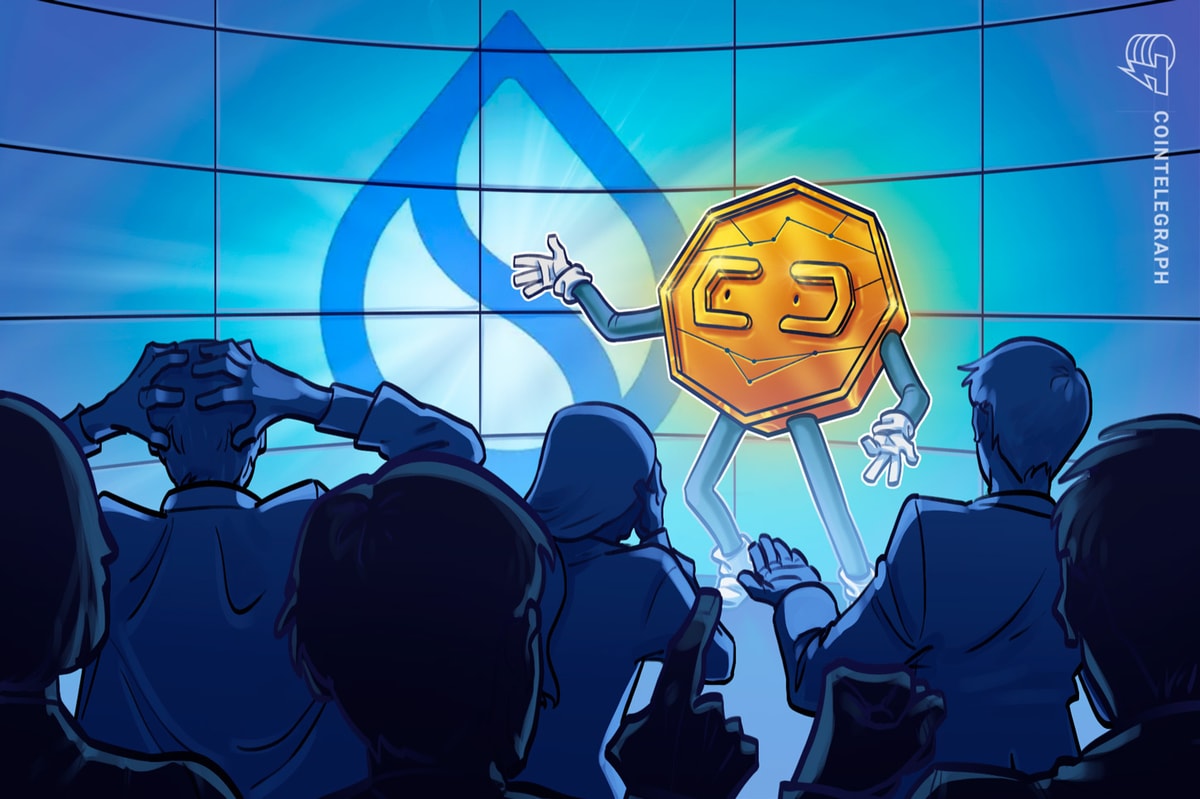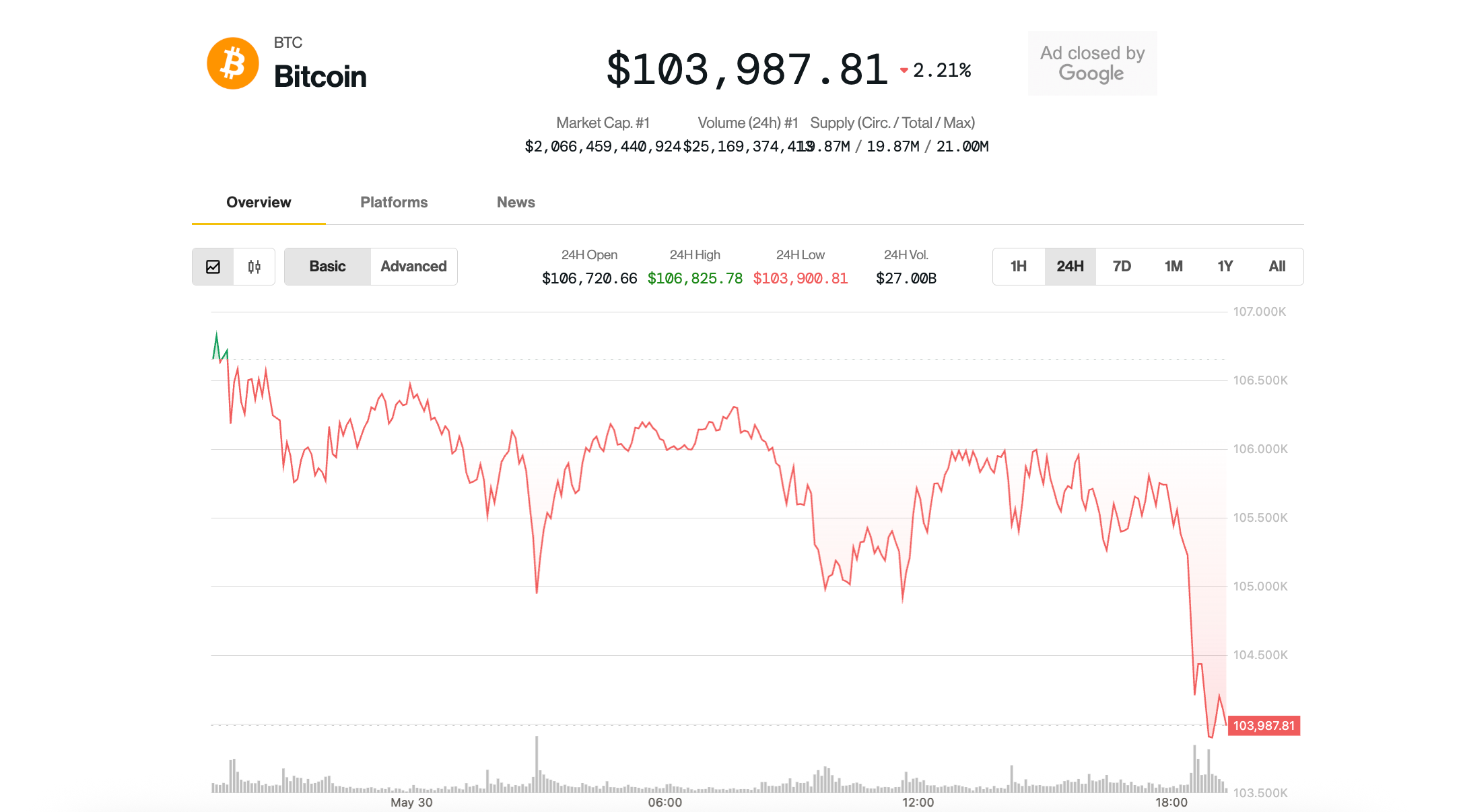Ethereum’s Chief Scientist Said Governance Tokens Benefit Whales at Expense of Users
In a critique that may throw the future of token-based governance into flux, Vitalik Buterin, the influential co-founder and chief scientist of Ethereum, said decentralized voting systems are benefitting whales at the expense of tokenholders.
While Buterin said that DAOs should promote community governance, he argued that a token’s value should not be tied to its democratic utility. He also characterized the leverage wielded by most retail traders as negligible compared to that of sophisticated investors and venture capitalists, and warned that tokenized governance may render DAOs vulnerable to special interests.
Structured Correctly
“The only people for whom it is a good trade are multimillionaires and hedge funds (including attackers),” Buterin said.
But Buterin’s stance clashes with the position of any members of DeFi projects who believe the rights imbued by governance tokens are invaluable in differentiating DAOs from centralized entities.
Corina Dolghier of MakerDAO’s Growth Core Unit told The Defiant that governance tokens allow projects to exercise collective decision-making in a transparent and decentralized manner.
Governance Project Uses ‘Contests’ to Help DAOs Improve Decisionmaking
Maker, Polygon and Aave Test Jokedao’s Humorous Approach to Governing
“This is what makes them different from owning shares,” Dolghierr continued. “When structured correctly, a governance token is a tool that allows us to run an organization in alignment with the decentralized ideals that crypto, DeFi, and web3 are built on, as opposed to behind closed doors decisions and no one knowing what’s truly going on.”
Dolghier also argued that governance rights are not the primary force driving the value of MakerDAO’s MKR token. “In our case, MKR value depends on the success of DAI, the original decentralized stablecoin.”
Make a Difference
While token-based governance models are not perfect, they empower a project’s community to make proposals and direct the future operations and structure of DAOs, said Beth Haddock, a strategic advisor to Balancer.
“Just like with voting in a political system, you either believe your vote counts or you decide you can’t make a difference,” Haddock told The Defiant. “If you believe in the power of DeFi and collective engagement then there is an opportunity to collaborate, advocate and bundle individual votes.”
Varun Kumar, the founder and CEO of Hashflow, argued that governance tokens are redefining how group decision-making is made in juxtaposition to the small and centralized managerial entities found in legacy institutions.
If you believe in the power of DeFi and collective engagement then there is an opportunity to collaborate, advocate and bundle individual votes.
Beth Haddock
While Kumar acknowledged that token-based governance is still in its early stages of development, he is optimistic that the systems will mature into vehicles for effective community rule.
“In the long run, tokenomics and governance frameworks that are able to properly weigh distribution will allow for proper community governance,” Kumar said.
Jared Grey, the head chef of Sushi, agrees that governance rights should not drive speculation on a token’s price.
Abracadabra Calls On Sushi For Emergency Assistance As Faulty Oracle Places $10M At Risk
renBTC Cauldron Could Accrue Bad Debt If Open Positions Are Not Closed
Grey told The Defiant that not enough is being done by DAOs to maximize voting participation from community members with fewer capital resources, despite existing token-based governance processes being imperfect due to large tokenholders enjoying an outsized influence over DAO decision-making.
“We need better models, but we must promote maximum participation in each model to iterate toward the best models faster,” Grey said. “We should respect the participation of smaller holders and encourage their involvement despite an imperfect model.”
Price and Governance
A recent Sushi proposal aims to restructure governance in favor of smaller tokenholders via a system inspired by the quadratic voting process popularized by Gitcoin’s grants. If passed, voting power would be distributed through “shares” issued to SUSHI holders who lock up their tokens.
“DeFi has long thought that token price and governance should be tied together, which can be seen in the many non-revenue generating protocols latching onto a narrative to pump their token,” the proposal’s authors said. “This proposal seeks to introduce a separation of control that will ensure successful token economics as well as honest and healthy governance.”
Optimism, Ethereum’s second-largest Layer 2 network, also sought to innovate on conventional token-based voting to limit the influence of large asset holders by introducing a two-tiered governance system.
Optimism governance is split between its Token House: where certain economic and technical parameters are governed by a traditional ‘one-token, one-vote’ system, and its Citizens’ House: which uses an identity-based ‘one person, one vote’ mechanism to make decisions about the protocol and public goods funding.
“If voting power can simply be bought, the voting body may not always be aligned with the long-term incentives of the project they’re governing,” Bobby Dresser, general manager of the Optimism Foundation, told The Defiant. “This is one reason why the Optimism Collective was designed to use a two-house governance system… We believe this two-house system is a powerful new model to reduce plutocratic influence in crypto governance.”
Vlad Shavlidze, the CEO of XDAO, also believes DAOs should utilize identity protocols to limit individuals to a single governance vote each.
“A meaningful governance model must be built on balancing the power of voice in different ways,” Shavlidze said. “The easiest way to make the governance fair for all participants is simple: one person, one vote.”
Read More: news.google.com









 Bitcoin
Bitcoin  Ethereum
Ethereum  Tether
Tether  XRP
XRP  Solana
Solana  USDC
USDC  Dogecoin
Dogecoin  TRON
TRON  Cardano
Cardano  Lido Staked Ether
Lido Staked Ether  Wrapped Bitcoin
Wrapped Bitcoin  Hyperliquid
Hyperliquid  Sui
Sui  Wrapped stETH
Wrapped stETH  Chainlink
Chainlink  Avalanche
Avalanche  Stellar
Stellar  Bitcoin Cash
Bitcoin Cash  LEO Token
LEO Token  Toncoin
Toncoin  Shiba Inu
Shiba Inu  USDS
USDS  Hedera
Hedera  WETH
WETH  Litecoin
Litecoin  Wrapped eETH
Wrapped eETH  Polkadot
Polkadot  Binance Bridged USDT (BNB Smart Chain)
Binance Bridged USDT (BNB Smart Chain)  Monero
Monero  Bitget Token
Bitget Token  Ethena USDe
Ethena USDe  Pepe
Pepe  Pi Network
Pi Network  Coinbase Wrapped BTC
Coinbase Wrapped BTC  WhiteBIT Coin
WhiteBIT Coin  Dai
Dai  Aave
Aave  Bittensor
Bittensor  Uniswap
Uniswap  Cronos
Cronos  Ethena Staked USDe
Ethena Staked USDe  OKB
OKB  Aptos
Aptos  Jito Staked SOL
Jito Staked SOL  NEAR Protocol
NEAR Protocol  BlackRock USD Institutional Digital Liquidity Fund
BlackRock USD Institutional Digital Liquidity Fund  Tokenize Xchange
Tokenize Xchange  Ondo
Ondo  Internet Computer
Internet Computer